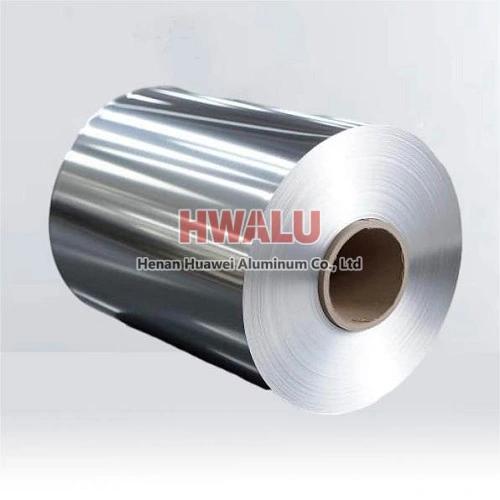What is Aluminum foil for decoration Aluminum foil for decoration is a specially processed aluminum foil product, which is mainly used for decoration, packaging and handmade purposes. It is usually smoother and glossier than ordinary aluminum foil, and can be printed with different patterns and colors to increase its decorative and visual effects. Decorative aluminum foil is usually used to make gift boxes ...
Aluminum foil supplier for India Huawei Aluminum Foil Factory exports a large amount of aluminum foil products to India every year, and we are able to provide aluminum foil products for a variety of application types. What types of aluminum foil are classified according to application? Aluminum foil comes in various types, and its classification often depends on the specific application for which it is int ...
What is Extra-heavy duty aluminum foil Extra-heavy duty aluminum foil is a type of aluminum foil that is thicker and more durable than standard or heavy-duty aluminum foil. It is designed to withstand higher temperatures and provide extra strength, making it suitable for more demanding applications in the kitchen and beyond. Extra-heavy duty aluminum foil common alloys The common alloy used for extra-heavy ...
Introduction: Welcome to Huawei Aluminum, your trusted source for high-quality Air-conditioner Aluminum Foil. This webpage will provide you with in-depth information about our aluminum foil products, including alloy models, specifications, and the reasons to choose Huawei Aluminum for your air-conditioning projects. What is Air-conditioner Aluminum Foil? Air-conditioner aluminum f ...
Black Gold Aluminum foil Black Gold Aluminum foil refers to aluminum foil with black or gold spray coating on the surface, and also has one side of gold and one side of very colored aluminum foil. Black aluminum foil is mostly used in aluminum foil tape, air duct materials, etc. Gold aluminum foil is widely used and is often used in chocolate packaging, pharmaceutical packaging, aluminum foil lunch box ...
What is the density of aluminum foil alloy? Aluminum foil is a hot stamping material that is directly rolled into sheets of metallic aluminum. Because the hot stamping effect of aluminum foil is similar to that of pure silver foil, aluminum foil is also called fake silver foil. Aluminum foil is soft, malleable, and has a silvery white luster. It also has a lighter texture, thanks to the lower density of aluminum ...
Degreasing pollution is mainly manifested on the surface of the aluminum foil in 0 state. After the aluminum foil is annealed, it is tested by the water brushing method, and it does not reach the level specified in the water brushing test. The aluminum foil that requires the water-washing test is mainly used for printing, composite with other materials, etc. Therefore, the surface of the aluminum foil must be ...
Is aluminum foil a good insulator? It is certain that aluminum foil itself is not a good insulator, because aluminum foil can conduct electricity. Aluminum foil has relatively poor insulation properties. Although aluminum foil has certain insulating properties in some cases, its insulating properties are not as good as other insulating materials. Because under normal circumstances, the surface of aluminum foi ...
After printing and coating, aluminum foil paper and cash register paper need to be post-printed and slit on a slitting machine to cut large rolls of semi-finished products into the required specifications. The semi-finished products that run on the slitting machine are an unwinding and rewinding. This process includes two parts: machine speed control and tension control. The so-called tension is to pull the al ...
1. Chemical composition: The alloy grades of aluminum foil for heat exchange fins mainly include 1100, 1200, 8011, 8006, etc. From the perspective of use, air conditioners do not have strict requirements on the chemical composition of aluminum heat exchange fins. Without surface treatment, 3A21 aluminum alloy has relatively good corrosion resistance, high mechanical properties such as strength and elongation, ...
The main factors affecting the heat sealing strength of aluminum foil medicine packaging are as follows: 1. Raw and auxiliary materials The original aluminum foil is the carrier of the adhesive layer, and its quality has a great influence on the heat seal strength of the product. In particular, oil stains on the surface of the original aluminum foil will weaken the adhesion between the adhesive and the orig ...








